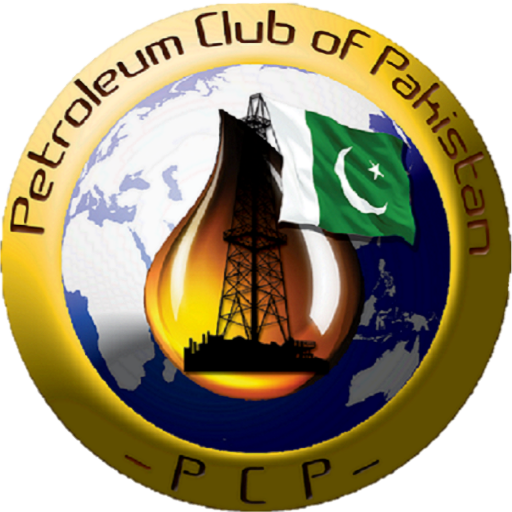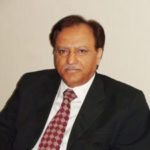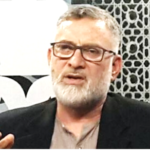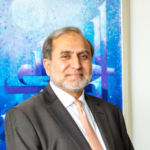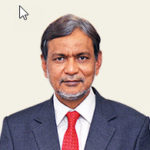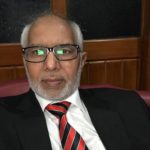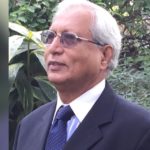
Dr. Shahid Rahim
independent consultant specializing in sustainable energy and power
system planning and development
A-century-and-a-half back when electric supply industry (ESI) started, it was small, isolated, and dispersed. Small generators, installed nearer to consumers, served them directly, and were isolated from each other. The first hundred years, however, saw these small systems merge and grow into a gigantic business enterprise, both in scope and size, and was termed “the largest and most complex machine in the world”. But a few events, set into motion in the past few decades, not only halted ESI’s further growth but forced it to come full circle, bearing out some theorists that small was not only “beautiful” but “profitable” too.
The ESI was born with Thomas Edison’s inventing the light bulb in 1879 and
establishing 2 thermal plants in the next 2 years, first in London and then in New York. Both plants were small and powered only the lights of a few hundred homes and shops in their neighborhoods using low voltage direct current (DC) supply.
The advent of alternating current (AC) and transformer a few years later, rendered the low voltage DC systems of Edison obsolete, and spawned a technological revolution in the ESI that saw power plants get bigger and bigger and interconnected in a complex web of higher and higher voltage transmission lines to serve consumers often located hundreds and thousands of miles away.
Major factors contributing to this business boom included the “economies of scale” in generation, distances between major load centers and good generation sites (especially, hydro), and technical and economic benefits that interconnection of isolated systems offered by way of reserve sharing, energy trading, and reliability improvement.
The first hundred years of the industry saw generating units getting doubled in size every 6 or 7 years. Between 1955 and 1970, the generating unit size jumped from 200 MW to 1,400 MW, a 7-fold increase. The prices of electricity also either declined or remained stable in real terms for almost over a century.
Like all good things, this “bigger was better and cheaper too” boom of the ESI finally ended in the 1970s. The OPEC oil embargo triggered a sharp rise in the industry’s costs of production which regulators were reluctant to pass on to consumers. Growing environmental concerns with mega generation and transmission projects also made them difficult to approve and finance. The advent of gas-fired combined cycle power plants in the 100 to 200 MW range, ended the golden era of the large central-station supply systems and of the vertically integrated ESI also.
Encouraged by reforms in the telephone and airline industries and pioneered by initiatives in the UK and Chile in the early 1990s, power sectors around the world were also swept by efforts to restructure the electric utilities to open them for competition in the generation function and permitting choice at the wholesale, and in some cases retail, levels. The ESI consequently was forced to turn on its heels.
Meanwhile, and particularly around the turn of the last century, variable renewable energy (VRE) technologies which were dubbed by utility managers as “exotic” and “heretical”, and brushed aside offhandedly, were making inroads quietly into the demand segments of this industry, previously considered the exclusive domain of centralized electric utilities.
Even though, the technical superiority of the VREs had never been in dispute nor had been their negligible operating costs, the main hurdle to their uptake had been their high investment costs. That obstacle was also removed in the last decade as, spurred by expanding demand, their costs plummeted—90% for solar photovoltaic and 70% for onshore wind electric systems since 2010—bringing them into a head-to-head competition with the traditional options.
Confluence of multiple factors pushed the ESI into an unprecedented dilemma. First time in its history, it was forced to realize that a continuation on the previous path—building large central-station power plants and serving consumer demand via extensive transmission and distribution (T&D) networks was not viable anymore, and in fact meant, financial ruin for them. It must either embrace the new market realities and return to its original small and distributed scale or get perished.
Since then, electric utilities around the world have been going through a
transformation process that has involved rethinking the traditional business model and replacing it with dynamic, flexible, and consumer-centric approaches. It has also necessitated many changes in the way power systems are planned and operated.
On the business side, electric utilities have been helped by their governments and regulators in creating policy, regulatory, and market frameworks that encourage investment in small, dispersed, and VRE-based schemes. The century-old business is now being reorganized along a more open and flexible lines to treat these new options not as threat to the industry but as partners to its own efforts to serve society with reliable and affordable electricity.
Many innovative schemes are being used to induce consumers and investors to install small and distributed technologies in the system. Utilities are finding it more feasible to serve customers that are located away from their existing grids either exclusively by them or in partnership with investors and local communities.
Utilities are also developing appropriate tools and data and information bases and making these freely accessible to potential customers and investors for using these to assess the scope and viability of VRE-based supply options in meeting customers’ own demand as well as contribution to their local grids.
Two major efforts deserve special mention. First, power system planning is assuming a new role by initiating the process at the consumer end to grasp the nature and characteristics of demand and working upward to assess the most feasible and valuable option to serve that demand. Second, the grid is being modernized, not just in terms of capacity, but to enhance its capability for integrating diverse and distributed technologies.
Our leaders in Pakistan must also realize that the era of large-scale, capital-intensive, and fossil-fuel powered supply schemes is already over. Our continuous reliance on them is fraught with huge risks as evident by the rapidly spiraling up circular debt which by some estimates has crossed PKR 2.6 trillion already.
It’s time for Pakistan to recast its ESI and align it with the emerging technology and market trends. This calls for incentivizing small, distributed, and preferably renewable generation schemes, linking them through a smart grid, and supporting them by small-and-distributed as well as large-and-long-duration energy storage.
We will need to electrify our transport through a carefully planned electric vehicles (EVs) program and the associated charging infrastructure. We will also need to substitute our oil or gas based industrial processes to self-generated or grid-supplied electricity. A critical thread that must run through all these endeavors is having an impactful energy conservation and efficiency improvement program.
Achieving all these objectives, some of which may be mutually conflicting, will not be easy and will need visionary leadership, bold and politically difficult decisions, and a painstakingly devised set of policies and plans. It’s a must however as the nation can’t afford to let the business continue as usual.
